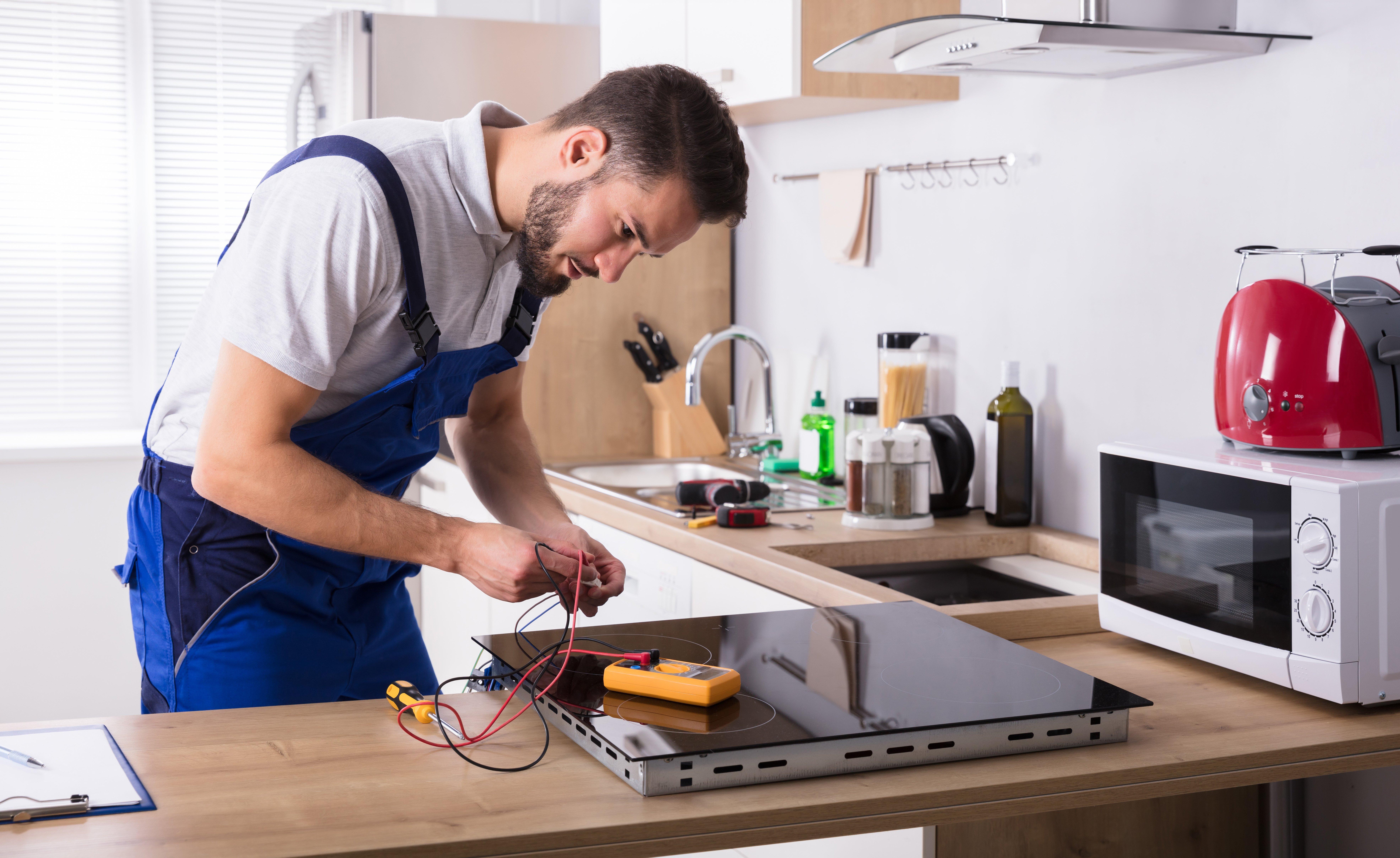What to Do When Your Cooking Range Breaks Down

A malfunctioning cooking range can quickly transform your kitchen from a place of creativity into a source of frustration. When your appliance starts acting up with heating problems, strange sounds, or safety concerns, knowing how to respond makes all the difference.
This guide walks you through identifying common issues, understanding when professional help is necessary, and maintaining your appliance for optimal performance.
Identifying Problems in Your Cooking Range
Gas Unit Complications
Gas-powered ranges present unique challenges that demand immediate attention when problems arise. The most critical issue involves potential gas leaks, which pose serious safety risks to your household.
Watch for these warning signals in gas appliances: unusual odors resembling rotten eggs, hissing sounds from connections, burners failing to ignite properly, and flames appearing yellow or orange rather than the normal blue color.
When you detect gas odors, immediately shut off your gas supply and contact professional technicians. Attempting DIY repairs on gas systems creates dangerous situations that could harm your family.
Electric Range Malfunctions
Electric cooking ranges face different challenges compared to their gas counterparts. These appliances depend on heating elements and electrical circuits that deteriorate with regular use over time.
Cooker repairs for electric models typically involve addressing heating elements that refuse to warm up, temperature inconsistencies during cooking, burned-out coils, or control panels that stop responding correctly. Most electric range problems stem from worn components or loose electrical connections, making professional cooking range repairs essential for restoring performance and safety.
Professional technicians understand the complex electrical systems in modern cooking ranges and can safely restore your appliance to proper working condition.
Oven Component Issues
Your range's oven section can develop various problems that significantly impact your cooking results. These issues often develop slowly, making them difficult to notice until they seriously affect performance.
Common oven-related problems include temperature fluctuations that make baking unpredictable, damaged door seals allowing heat to escape, malfunctioning thermostats providing incorrect readings, and broken timers affecting cooking schedules.
Recognizing When You Need Expert Help
Critical Safety Situations
Certain problems require immediate professional intervention and should never be treated as do-it-yourself projects. Safety concerns always take priority over cost considerations.
Contact professionals immediately when you experience gas odors or suspect leaks anywhere in your system, electrical sparking or burning smells during operation, damaged power cords or electrical connections, or carbon monoxide detector alarms in your kitchen area.
Performance-Related Issues
Even problems that don't pose immediate safety risks can benefit from professional attention. Poor appliance performance affects cooking quality and increases energy consumption unnecessarily.
Performance issues warranting expert evaluation include inconsistent heating patterns across different burners, significantly longer preheating times than normal, unusual operational noises, and control mechanisms that don't respond appropriately to adjustments.
Maintenance Strategies for Longevity
Daily Care Routines
Proper maintenance extends your appliance's useful life and prevents numerous common problems from developing. Different components require specific cleaning approaches for optimal results.
Essential daily tasks include wiping surfaces clean after each cooking session, addressing spills immediately before they harden, removing food particles from burner areas, and visually checking for any obvious damage or unusual wear patterns.
Professional Service Benefits
Regular professional maintenance significantly extends your cooking range's lifespan while improving overall performance and safety. Expert technicians can identify developing problems before they become expensive repairs.
Annual professional service includes thorough safety inspections, performance calibration, cleaning of internal components, and verification that all safety systems function correctly.
Making Smart Repair Decisions
Cost Considerations
Cooking range repair costs vary considerably depending on the specific problem and required replacement parts. Understanding typical pricing helps you budget appropriately and recognize fair estimates.
Factors influencing repair costs include whether problems involve gas or electrical systems, your appliance's age and manufacturer, parts availability and pricing, repair complexity and time requirements, and whether you need emergency versus scheduled service.
Replacement vs. Repair Analysis
Sometimes replacing your appliance makes more financial sense than continued repairs. Several factors help determine the most economical choice for your situation.
Consider replacement when repair estimates exceed half your appliance's current value, your range is over fifteen years old, you're experiencing frequent breakdowns, or safety concerns cannot be adequately resolved through repairs.
Frequently Asked Questions
How much do cooking range repairs typically cost? Basic repairs like element replacement usually range from $100-250, while complex gas or electrical issues can cost $200-500 depending on required parts and labor.
What are the most common cooking range problems? The most frequent issues include heating element failures, gas ignition problems, temperature control malfunctions, and oven door seal deterioration.
How often should I schedule professional maintenance? Annual professional maintenance prevents most serious problems and extends appliance life. Heavy cooking usage may benefit from twice-yearly service visits.
Can I repair my cooking range myself? Simple cleaning and basic maintenance are safe for homeowners, but gas repairs and electrical work should always be handled by licensed professionals for safety reasons.
How do I know if my cooking range needs replacement? Consider replacement when repair costs exceed 50% of replacement value, your appliance is over 15 years old, or you're experiencing frequent recurring problems.
What safety precautions should I take with a malfunctioning range? Turn off gas supplies if you smell gas, disconnect electricity for electrical problems, ensure adequate ventilation, and contact professionals immediately for safety concerns.
How long do cooking range repairs usually take? Simple repairs take 1-2 hours, while complex gas or electrical work might require 3-4 hours depending on parts availability and problem complexity.
What warranty should I expect on repair work? Professional repair services typically provide 30-90 days warranty on parts and labor, with extended coverage for major component replacements.
Ensuring Long-Term Performance
Maintaining your cooking range requires consistent attention, regular professional care, and prompt response to developing problems. Understanding common issues and following maintenance schedules ensures reliable appliance performance for years.
Remember that safety considerations always outweigh cost concerns when dealing with cooking appliances. Professional technicians have the training and equipment necessary to handle repairs safely and effectively.
With proper maintenance and timely professional attention, your cooking range will continue serving your family's needs reliably, keeping your kitchen functioning as the heart of your home.






